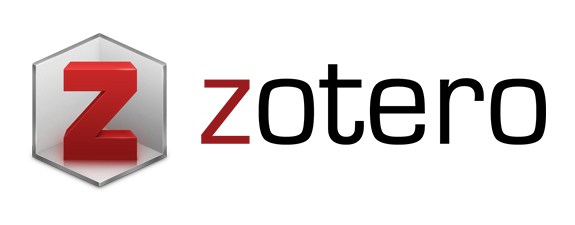Usability Analysis of Trello Using the System Usability Scale (SUS) at the UIN Jakarta Career Development Center
Abstract
The UIN Jakarta Career Development Center is a dedicated unit focused on fostering the personal and professional growth of both current students and alumni of UIN Jakarta. Supported by student interns from diverse educational backgrounds and academic programs, the center operates daily to provide comprehensive services. These interns bring varied educational backgrounds and experiences, influencing their readiness to implement software for collaborative and coordinating purposes, replacing the previous system (Trello) at the UIN Jakarta Career Development Center. This study aims to evaluate Trello's effectiveness at the UIN Jakarta Career Development Center, intending to enhance the interns' performance and improve service delivery to uphold UIN Jakarta's reputation. The research methodology employs the System Usability Scale (SUS), with validity and reliability testing conducted using Cronbach's Alpha. Findings indicate that Trello's usability at the UIN Jakarta Career Development Center yields an average total score of 59.625 on the grade scale, categorizing usability as D with an adjective rating of OK and marginally acceptable. However, 37.5% respondents express skepticism regarding others' ability to quickly grasp Trello's use, while 55.5% state a need to acclimate themselves to Trello's usage. These insights underscore the importance of refining Trello's implementation to better support the center's operations and ensure a seamless user experience for interns and staff alike.
Keywords
Full Text:
PDFReferences
N. Zola, A. M. Yusuf, and F. Firman, “Konsep social cognitive career theory,” JRTI (Jurnal Ris. Tindakan Indonesia), vol. 7, no. 1, pp. 24-28, 2022, doi: 10.29210/30031454000.
R. W. McQuaid and C. Lindsay, “The concept of employability,” Urban Stud., vol. 42, no. 2, pp. 197–219, 2005, doi: 10.1080/0042098042000316100.
W. G. Salsabila, C. Adelicia, A. Putri, and W. Mohammad, “Web-based management of whitefilia social media content projects using trello,” Yumeka Journal of Digital Business and Economics, vol. 1, no. 1, pp. 29-35, Sep. 2023.
A. Ayuningtias and M. Q. Huda, “Evaluasi Usability User Interface dan User Experience Aplikasi SAKERNAS PANEL 2018 Badan Pusat Statistik Kota Tangerang Selatan,” Appl. Inf. Syst. Manag., vol. 2, no. 2, pp. 71–76, 2021, doi: 10.15408/aism.v2i2.20156.
D. G. Bonett and T. A. Wright, “Cronbach’s alpha reliability: Interval estimation, hypothesis testing, and sample size planning,” J. Organ. Behav., vol. 36, no. 1, pp. 3–15, 2015, doi: 10.1002/job.1960.
W. Welda, D. M. D. U. Putra, and A. M. Dirgayusari, “Usability testing website dengan menggunakan metode system usability scale (sus)s”, IJNSE, vol. 4, no. 3, pp. 152–161, Nov. 2020.
D. W. Ramadhan, “Pengujian usability website time excelindo menggunakan system usability scale (sus) (studi kasus: website time excelindo),” JIPI (Jurnal Ilm. Penelitian dan Pembelajaran Informatika), vol. 4, no. 2, pp. 139-147. Dec. 2019.
R. I. Situmorang, R. Yunis, and H. Hita, “Evaluasi Usability Portal Akademik UNIMED Menggunakan Metode Heuristic dan System Usability Scale”, REMIK, vol. 6, no. 3, pp. 498-507, Aug. 2022.
U. Silalahi, "Metode Penelitian Sosial Kuantitatif". 2015.
Z. Sharfina and H. B. Santoso, "An Indonesian adaptation of the System Usability Scale (SUS)," 2016 International Conference on Advanced Computer Science and Information Systems (ICACSIS), pp. 145-148, Oct. 2016. doi: 10.1109/ICACSIS.2016.7872776.
U. Ependi, T. B. Kurniawan, and F. Panjaitan, “System usability scale vs heuristic evaluation: a review,” Simetris J. Teknik Industri, Mesin, Elektro, dan Ilmu Komputer. vol. 10, no. 1, pp. 65-74, Apr. 2019.
I. Salamah, “Evaluasi usability website polsri dengan menggunakan system usability scale,” J. Nas. Pendidik. Tek. Inform. vol. 8, no. 3, pp. 176-183, Dec. 2019.
M. M. Sanaky, “Analisis Faktor-Faktor Keterlambatan Pada Proyek Pembangunan Gedung Asrama Man 1 Tulehu Maluku Tengah,” J. Simetrik, vol. 11, no. 1, pp. 432–439, 2021, doi: 10.31959/js.v11i1.615.
D. Ayunita, “Modul Uji Validitas dan Reliabilitas,” October, 2018.
W. Budiaji, “The Measurement Scale and The Number of Responses in Likert Scale,” J. Ilmu Pertan. dan Perikan. Desember, vol. 2, no. 2, pp. 127–133, 2013, doi: 10.31227/osf.io/k7bgy.
S. N. Chakrabartty, “Scoring and Analysis of Likert Scale: Few Approaches,” Journal of Knowledge Management and Information Technology, vol. 1, no. 2, pp. 31-44, Jul. 2014.
N. Kumaladewi, M. C. Utami, and S. Hidayatuloh, “Evaluation of Digital Sociology on Student Salaf and Modern Islamic Boarding Schools,” Appl. Inf. Syst. Manag., vol. 7, no. 1, pp. 37–42, 2024, doi: 10.15408/aism.v7i1.35980.
DOI: https://doi.org/10.15408/aism.v7i2.38220
Refbacks
- There are currently no refbacks.

This work is licensed under a Creative Commons Attribution-ShareAlike 4.0 International License.
EDITORIAL ADDRESS:
Department of Information Systems, Faculty of Science and Technology,
Universitas Islam Negeri (UIN) Syarif Hidayatullah Jakarta
Faculty of Science and Technology Building, 3rd Floor, 1st Campus, Universitas Islam Negeri (UIN) Syarif Hidayatullah Jakarta
Jl. Ir. H. Juanda No. 95, Ciputat Timur, Kota Tangerang Selatan, Banten 15412, Indonesia.
Tlp/Fax: +622174019 25/+62217493315.
E-mail: aism.journal@apps.uinjkt.ac.id, Website: https://journal.uinjkt.ac.id/index.php/aism

This work is licensed under a Creative Commons Attribution-ShareAlike 4.0 International License.
Applied Information System and Management (AISM) | E-ISSN: 2621-254 | P-ISSN: 2621-2536
https://journal.uinjkt.ac.id/index.php/aism






